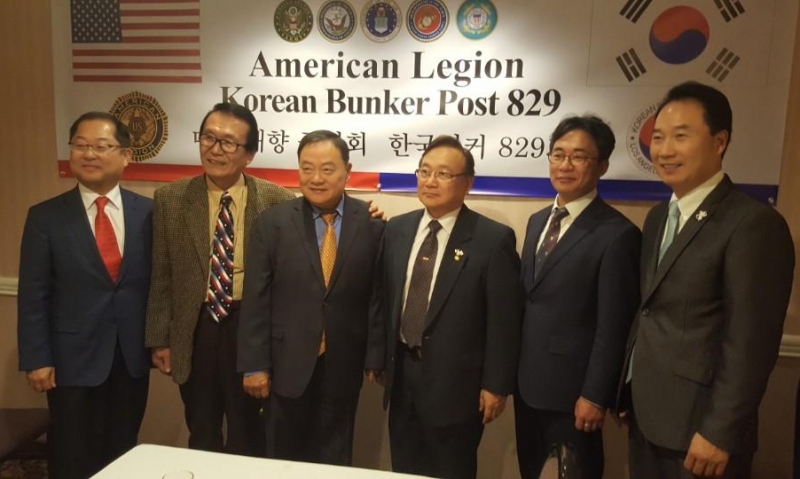
After 30 years, the re-chartered post is making a difference in the community.
American Legion Post 829 was first chartered immediately following the Korean War but has been dormant for the past 30 years. That has all changed as the newly re-chartered Korean Bunker Post 829 has new life in the Los Angeles community thanks to incoming Commander Tony Pak who has worked hard to have a direct positive effect.
Los Angeles has the largest Korean community in the United States with nearly 60,000 ethnic Koreans. And a high percentage of them are military veterans.
Department of California Historian Wayne Yee met with key members of Post 829 at an authentic restaurant in Koreatown. The boisterous atmosphere matched their excitement for the future of the post, their history and war stories.
Yee got involved with Post 829 members when he learned they were having problems receiving the benefits they earned from service. He invited them to join his home post of Chinatown Post 628 so they could enjoy the benefits of membership. Many of the Vietnam-era Koreans do not speak English very well; something Yee noticed during post meetings. This played a role in the re-charting of Post 829.
“We are first generations, we are born in Korea and came back here,” Pak said. “So we don’t speak good English, but back then (during the military) it was worse.”
“You can’t force them to understand you,” Yee said. “So we built the Korean post for the community.”
Yee helped Pak get the Korean Bunker post started back up with 15 members. Membership has grown to 22 since being chartered last September, and it's comprised of mostly Vietnam veterans and those who served in both the Korean and American military.
"In Korea you get drafted so they served at a very young age," said Yee, a Vietnam veteran. "Many Korean immigrants during that time also joined the U.S. military and served when they were older.” These veterans who fought in Vietnam have friends who were there with them, but might not have joined the U.S. military after coming to the United States. Post 829 members are passionate about advocating for all the comrades that served during Vietnam.
Pak is confident that membership will continue to grow and the post will be a pillar in the community.
Already, the post has helped introduce legislation to designate a portion of Interstate 5 in Orange County in honor of the late World War II and Korean War veteran Col. Young Oak Kim. Born in California, Kim was a member of the 100th Infantry Battalion (a segregated unit of Japanese-Americans from Hawaii) and 442nd Regimental Combat Team. Although the 100th Infantry Battalion commander offered him a transfer, "fearing ethnic conflict between Young Oak and the Japanese-American troops," Kim remained. He said, "“There are no Japanese nor Korean here, we’re all Americans and we’re fighting for the same cause.” He was awarded 19 medals, including the Distinguished Service Cross for his actions at the Battle of Anzio, two Silver Stars, two Bronze Stars and three Purple Hearts.
Korean Bunker Post 829 also is working on two American Legion resolutions. One calls for the construction of a monument that pays respect to those who made the ultimate sacrifice during the Korean War. The monument will have the names inscribed of the more than 34,000 American servicemembers who lost their lives. And the other one calls for the more than 2,000 Korean immigrants who served in Vietnam and are now U.S. citizens to be eligible for American Legion membership. Yee feels this is important not only to support this older group of veterans, but also to show the next generation that The American Legion takes care of veterans.
- Membership

